The Gujarat Public Service Commission has released an official notification to recruit State Tax Inspectors. Candidates who applied to GPSC State Tax Inspector Notification for 450 Vacancies should know about the exam pattern and syllabus for better preparation. The GPSC State Tax Inspector Syllabus 2024-25 has been mentioned in the official notification. The Gujarat State Tax Inspector Syllabus 2024-25 helps candidates to focus on the topics that are important for the exam. Candidates can visit the official website and download the syllabus or go through this article to download the syllabus PDF.
GPSC State Tax Inspector Syllabus 2024-25
The Gujarat Public Service Commission has released the State Tax Inspector and Other Posts Syllabus in the official website. Candidates who applied for the GPSC State Tax Inspector Recruitment other posts can download the syllabus PDF from https://gpsc.gujarat.gov.in/. The GPSC State Tax Inspector Syllabus 2024-25 includes all the important topics for the exam. Candidates having a clear understanding of the exam pattern and syllabus help in creating a better preparation plan for the exam. Candidates can check the detailed GPSC State Tax Inspector and Other Posts Exam Pattern, Syllabus and Subjects involved from this article.
GPSC State Tax Inspector Syllabus
Candidates who applied for GPSC State Tax Inspector should check the key information provided in the official notification mentioned in the table below:
| GPSC State Tax Inspector Syllabus and Exam Pattern 2024-25 Overview | |
| Recruiting Organisation | Gujarat Public Service Commission |
| Post Name | State Tax Inspector and Other posts |
| Vacancies | 450 |
| Educational Qualifications | Graduation and other |
| GSPSC State Tax Inspector 2024 Exam Mode | OMR Based |
| GSPSC State Tax Inspector 2024 and other posts Selection Process |
|
| GSPSC State Tax Inspector Prelims Exam Date | December 2024 |
| GSPSC State Tax Inspector Prelims Exam Duration | 2 Hours |
| GSPSC State Tax Inspector Mains Exam Duration | 3 Hours/ Each paper |
| Official website | https://gpsc.gujarat.gov.in/ |
GPSC State Tax Inspector Selection Process 2024-25
The GPSC State Tax Inspector Selection Process 2024 includes Preliminary Exam and Mains Exam. Candidates should score more or equal to the required cutoff marks prescribed by the commission. The Candidates qualifying Prelims and Mains exam will be shortlisted for document verification.
GPSC State Tax Inspector Exam Pattern 2024-25
GSPSC State Tax Inspector Prelims Exam contains General Science questions for a total of 200 Marks. Candidates should clear the prelims exam cutoff marks prescribed by the commission to appear for mains exam. The questions are of objective type and candidates should be aware of negative marking for each incorrect answer.
| Paper/ Subject | Questions | Duration | Total Marks | Negative Marking |
| General Studies | 200 | 2 hours | 200 | 0.3 Marks for each incorrect answer |
GPSC State Tax Inspector Mains Exam Pattern 2024-25
As the Preliminary results are out, candidates who cleared the exam should prepare for the mains exam by following the proper preparation strategy. The GPSC State Tax Inspector Mains Exam Pattern and syllabus has been shared below.
| Subjects | Duration | Total Marks |
| Gujarati | 3 hours | 100 |
| English | 3 hours | 100 |
| General Science 1 | 3 hours | 100 |
| General Science 2 | 3 hours | 100 |
| Total Marks | 400 | |
GPSC State Tax Inspector Syllabus 2024-25
GPSC State Tax Inspector Syllabus 2024-25: Prelims Exam consists of the following subjects,
I. History
- Indus Valley Civilization: Characteristics, Places, Society, Cultural History, Art and Religion, Vedic Age- Jainism and Buddhism. Republics of Ancient India.
- Maurya and Gupta empires, Chola and Pallava dynasties. Vijayanagar Empire.
- Important Dynasties of Gujarat-Impact and Contributed Important Policies, Their Administrative System, Economy, Society, Religion, Art, Architecture and Literature
- Arrival of Europeans in India, establishment and expansion of British rule in India, India’s freedom struggle of 1857: with special reference to Gujarat, religious and social reform movements in India and Gujarat in the 19th century.
- Indian freedom movement, Indian revolutionaries in India and abroad, contribution and role of freedom fighters of Gujarat and India.
- Role and Contribution of Mahatma Gandhi and Sardar Patel in Pre-Independence and Post-Independence India.
- Post-Independence India: Reorganization of States in the country, Mahagujarat Movement, Important Events.
- Reformist measures and achievements of the rulers of the desi states of Saurashtra, Kutch and Gujarat.
II. Cultural Heritage
- Cultural Heritage of India and Gujarat: Art Forms, Literature, Sculpture and Architecture,
- Folk Culture and Oral Tradition of Gujarat: Its Important Characteristics and Implications.
- Arts and Crafts of Gujarat: Socio-Cultural Contribution.
- Tribal life.
- Pilgrims and Tourist Places of Gujarat.
III. Indian State System, Constitution, Social Justice and International Relations.
- Indian Constitution-Emergence and Development, Characteristics, Preamble, Fundamental Rights and Duties, Guiding Principles, Important Constitutional Amendments, Important Provisions and Ultimate Structure.
- Union and State Functions and Responsibilities, Parliament and State Legislatures; Structure Functions Powers and Privileges, Role of President and Governor.
- Constitutional institutions, statutory, regulatory and quasi-judicial institutions.
- Panchayati Raj.
- Public Policy and Governance, Effects of Liberalization, Privatization and Globalization on Governance.
- Rights Related Issues (Human Rights, Rights of Women, Rights of Scheduled Castes and Scheduled Tribes, Rights of Children) etc.
- Foreign Policy of India- International Relations- Important institutions, agencies, various organizations, their structure and official mandate.
- Important policies and programs of Central and State Governments.
IV. Indian Economy and Planning
- Indian economy before independence, Emergence and development of planning function in India- historical discussions, models of planning and changes in them over time, Indian economy in the post-reforms period: new economic reforms, Niti Aayog: objectives constitution and functions.
- Various economic policies and reforms in the agriculture industry and service sector, infrastructure in the Indian economy, banking and insurance: regulatory framework, the impact of privatization on the Indian economy, growth, challenges and opportunities.
- Indian Public Finance System: Indian Tax System, Public Expenditure, Public Debt, Food and Aid in Indian Economy, Center and State Fiscal Relations, Goods and Services Tax (GST): Concept and Implications. Important Institutions associated with the Indian Public Finance System. Role of Kandy Finance Commission and State Finance Commission.
- Trends, structure, structure and direction of India’s foreign trade.
V. Geography
- General Geography: Earth as a part of Solar System, Motion of Earth, Concept of Time and Seasons, Internal Structure of Earth, Major Landforms and their Characteristics, Structure and Organization of Atmosphere, Elements and Factors of Climate, Air Masses, Atmospheric Disturbance, Climate Change, Oceans: Physical, chemical, biological characteristics, aquatic disasters, marine and continental resources.
- Physical Geography: Major Natural Divisions, Earthquakes and Landslides, Natural Runoff, Seasonal Climate Regions, Atmospheric Disturbances, Cyclones, Natural Vegetation: National Parks and Sanctuaries, Major Land Types, Rocks and Minerals, with respect to India, Gujarat and World
- Social Geography: Population distribution, population density, population growth, male-female ratio, literacy, occupational structure, Scheduled Castes and Scheduled Tribes population with respect to India, Gujarat and the world. Ethnic groups, linguistic groups, rural-urban components. Urbanization and Migration, Metropolitan Regions.
- Economic Geography: Main divisions of the economy, agriculture, industry, services, their main characteristics, basic industries-agriculture, minerals, forestry, fuel (fuel) and human labour-based industries, transport and trade, methods and problems.
VI. Science and Technology
- Science and Technology: Nature and scope of science and technology, presentation of science and technology in everyday life, national policy on science, technology and innovation, various organizations involved in science technology and innovation in India, their activities and contributions, contributions of eminent Indian scientists.
- Information and Communication Technology (ICT): Form and Sector of ICT, Various Government Schemes promoting ICT, e-Governance Programs and Services Cyber Security, National Cyber Crime Policy.
- Technology in space/space and defence services: Evolution/development of Indian space programme, various institutions and programmes.
- India’s Energy Policy and Nuclear Policy-Government Policies and Programmes.
- Environmental Science: Policies and treaties for environment conservation at national and international level, National Action Plan on forest and wildlife conservation, climate change and disaster management.
VII. General intellectual ability
- Logical and analytical ability.
- Series of numbers, notation and their solution.
- Diagrams and its subdivisions, Venn Diagrams.
- Questions related to clock, calendar and age.
- Mean or median, median and polynomial, weighted average.
- Exponents and Exponents, Square Roots, Cube Roots, Square Roots and Square Roots.
- Percent, simple and compound interest, profit and loss.
- Time and Work, Time and Distance, Speed and Distance.
- Area and perimeter, volume and surface area of simple geometric figures (cube with six parallel sides, cylinder, cone, sphere).
- Area and perimeter, volume and surface area of simple geometric figures (cube with six parallel sides, cylinder, cone, sphere) Percent, simple and compound interest, profit and loss.
- Interpretation of data, analysis of data, sufficiency of data, probability.
VIII. Events of regional, national and international importance
Candidates should be aware of current state, national, and international events.
GPSC State Tax Inspector Syllabus 2024-25 Download PDF
Candidates preparing for the GPSC State Tax Inspector Exam 2024 should thoroughly review the syllabus to ensure comprehensive preparation. It’s crucial to focus on both the Prelims and Mains subjects as outlined in the GPSC State Tax Inspector Syllabus 2024-25. Identify the areas that require more attention and allocate your study time accordingly. For detailed information, candidates can download the official GPSC State Tax Inspector Syllabus 2024-25 PDF from the official website or use the link provided below.

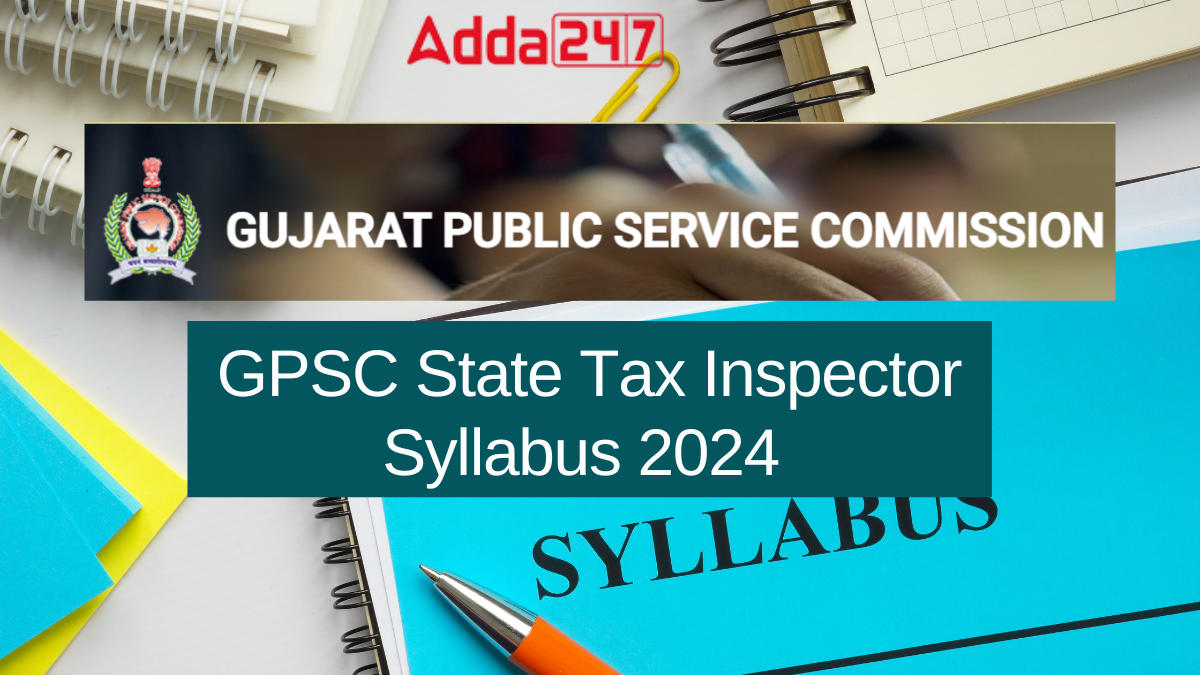


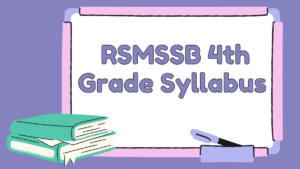 RSMSSB 4th Grade Syllabus 2025 and Downl...
RSMSSB 4th Grade Syllabus 2025 and Downl...
 OSSSC PEO Syllabus 2025, Check Panchayat...
OSSSC PEO Syllabus 2025, Check Panchayat...
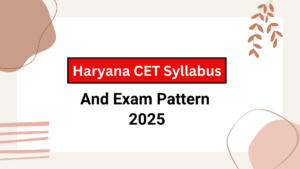 Haryana CET Syllabus 2025 And Exam Patte...
Haryana CET Syllabus 2025 And Exam Patte...

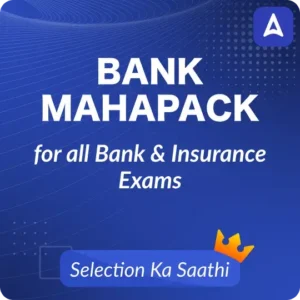
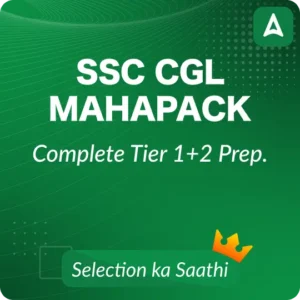
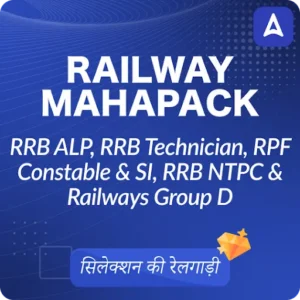
 Adda247 Job portal has complete information about all Sarkari Jobs and Naukri Alerts, its latest recruitment notifications, from all state and national level jobs and their updates.
Adda247 Job portal has complete information about all Sarkari Jobs and Naukri Alerts, its latest recruitment notifications, from all state and national level jobs and their updates.